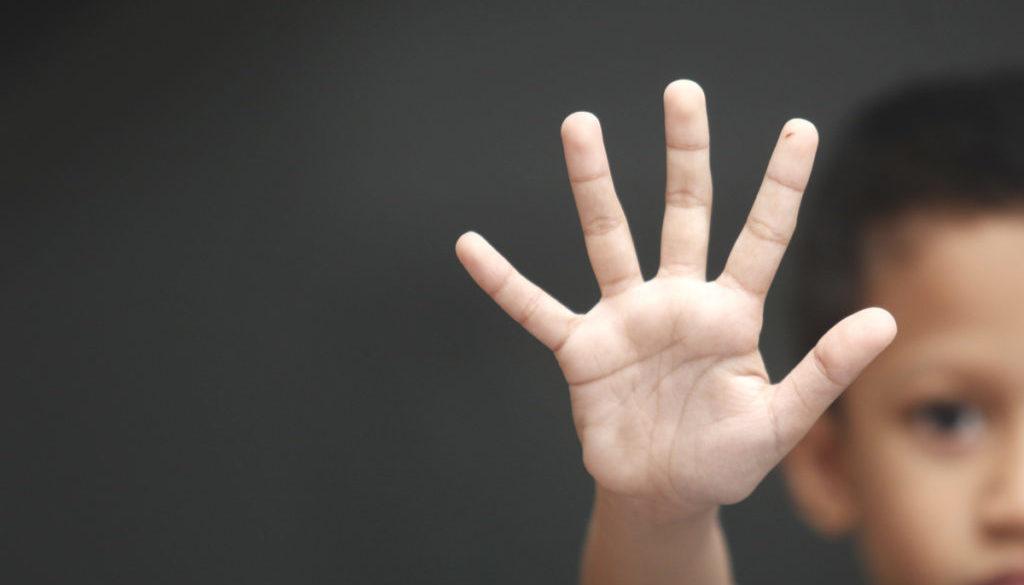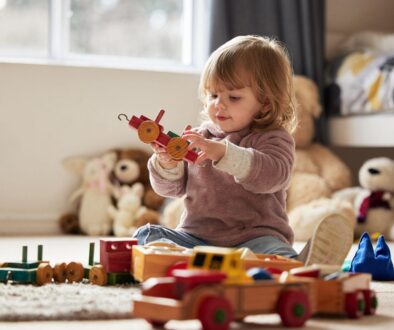Five Simple Rules to Teach Body Safety

From a young age, we teach our littlest family members to wash their hands to protect against germs, to look both ways before crossing the street, and to “stop, drop and roll” in case of a fire. Our children’s safety is of utmost importance to us, so why is it so difficult for us to teach body safety skills that could help prevent against sexual victimization? This subject may seem taboo or uncomfortable, or frankly, something we have just never thought about because we were not taught about it as children. The good news is, its never too late to start teaching these essential skills, and it doesn’t have to be awkward.
First, let’s learn a little bit about child sexual abuse. While this information can feel very scary, proper education is one of the best forms of prevention. The Child Molestation Research and Prevention Institute estimates that 95% of sexual abuse is preventable through such education. While statistics vary, it is estimated that in the United States, 1 in every 3 girls is sexually abused before their 18th birthday. The same is true for every 1 out of 5 boys. 1 in 5 children are now sexually exploited on the internet. Unfortunately, the youngest and most vulnerable children are abused more frequently, with 20% of sexual abuse occurring to children under the age of 8 and more than 90% of people with developmental or intellectual delays being sexually abused during their lifetime. Finally, while we have all typically heard of “Stranger Danger,” the truth is that 90% of children who are sexually abused are sexually abused by somebody they know, love, or trust, making this phrase actually harmful to the safety of our children. Sexual abuse does not discriminate based on socioeconomic class, ethnic or cultural lines, religion, or education level and there is no clear offender profile, meaning abusers can be anyone: parents, coaches, teachers, friends, doctors, community or religious leaders, or neighbors. It is also important to remember that child sexual abuse is not just contact abuse like rape, but also frequently includes exposing oneself to a minor, fondling, obscene text messages, and exposing one to pornography or eliciting pornographic photographs.
So now, how do we take action steps to prevent child sexual abuse? The key is education beginning at birth with these 5 simple rules.
- Teach Proper Names for Private Parts
It is so important that children are taught proper terms for their genitalia, without embarrassment. Children who feel embarrassed by talking about their genitals are less likely to tell someone if something inappropriate happens. There is nothing funny about these terms for our private parts because everybody has them, just like we all have a nose, eyes, and mouth! Teaching proper names allows children to communicate more effectively if something does happen. There have been countless reported incidents where a child has tried to disclose sexual abuse by telling an adult that someone has touched their “cookie,” or their “flower,” only to be misunderstood and thus repeatedly exposed to abuse. You can start teaching these terms as soon as a baby is born.
- Private Parts are PRIVATE
We often refer to our genitals as our private parts because they are just that – private. The Touching Safety Rule can be taught to children as early as 12-18 months old. A simple version can go something like, “Private parts are the parts of our bodies that are covered by a bathing suit when we go to the beach. Nobody should touch or look at our private parts, except for a safe adult to help us stay clean and healthy.” It would then be important to talk about the few scenarios that it would be okay for a safe adult to help a child with their private parts. For example, “Babies can’t change their own diapers or give themselves baths safety, so a parent has to help a baby stay clean. If a child hurts their private parts, a doctor may need to look at them to see how they can help.” Talk about who a safe adult is and always remind children that they can say “no” if they don’t feel comfortable or safe, no matter who that adult is. Once a child is old enough to wash or wipe themselves, a parent should no longer help with these tasks, and instead teach their young child how to appropriately care for and clean their own private parts.
- My Body is MINE – Teaching Consent
This the rule that most families struggle with. Oftentimes, we hear that it is related to respecting our elders, but to prevent potential sexual abuse, it is so much more important to teach children to respect themselves and their own bodies. From the age of 12-18 months old, children should be taught that they are the bosses of their own bodies. This means that they never have to hug or kiss somebody unless they want to. This goes for parents or grandparents too. So how do we teach children this concept while also respecting family values and traditions? As the parents, it is our job to let other adults know that we are teaching our child consent and therefore do not force any type of hug or touch on them. Personal space and boundaries should be respected no matter how old the person is. If a child doesn’t want to give a hug, you can try offering an alternative, though ultimately, this should not be enforced either: “maybe we can do a high-five to say goodbye instead.” It is important to also teach children that they need to respect the boundaries and consent of others. This can be done by teaching your child that they must always ask before hugging or touching somebody, and they must listen if that person says no. It may even be helpful to practice with your child. One tactic used when working with children who lack boundaries is this: if a child is running up to hug you, especially if you are a new adult to them, you can stop and put out your hand and say something like “Oops! Don’t forget you always have to ask somebody before you give them a hug. I’m not really feeling like a hug right now. Do you want to do a high-five or a handshake instead?”
- No secrets
Children should be taught that nobody should ever ask them to keep a secret, especially if it is about private parts. One easy way to differentiate with a young child is to teach the difference between Secrets versus Surprises. Teach your child that a surprise is usually something fun and not scary that the person will eventually find out about. For example, a birthday present, a surprise party, or a new toy. Secrets are something that children are asked never to tell, and therefore, nobody should ever ask a child to keep a secret.
- No, Go, and Tell
Finally, if somebody does ever try to break the Touching Safety Rule, “No, Go and Tell,” is a simple way to teach our child what to do. This skill can be taught as early as your child has the appropriate language, oftentimes around the age of 2. The first thing to do in an unsafe scenario is to immediately say “NO,” or “STOP.” Help your child practice this using a loud, assertive voice. The next step is to “Go” or “Get away.” Help your child by identifying safe places or persons to go to. For example, if the abuse occurs in the home, is there a safe neighbors house to go to? And finally, and maybe most importantly, “Tell.” Teach your child to tell an adult about what happened. Come up with a list of 5 safe adults that a child knows and can talk to. If the adult doesn’t listen or believe the child, remind your child to keep telling until they get help.
While prevention is key, sometimes children do get sexually abused. If your child does disclose sexual abuse or potential sexual abuse to you, it is so important for you to believe and support your child. While it may seem hard, try to remain calm. You don’t want your child to feel like they have upset you or have said something wrong. Don’t interrogate or question – that’s the job of the investigators. A simple phrase can go a long way. For example, “thank you so much for trusting me enough to tell me what happened. I believe you and I am so sorry that happened to you. I am so proud of you for telling me and I am going to do everything that I can to keep you safe.” Immediately contact Child Protective Services and/or law enforcement. In Florida, call the Florida Abuse Hotline at 1800-96-ABUSE (22873).
In summary, practice these skills with your child over time. Incorporate age-appropriate body safety and boundaries books into their libraries. Normalize talking about private parts. Don’t ever interrogate your child, even if you do suspect sexual abuse. You never want your child to feel as if they have done something wrong and repeatedly asking a child if they have been abused can be psychologically harmful. The best thing to do is teach and practice these skills, and provide a safe, supportive, and loving environment for your child to openly communicate with you.
References and Resources:
Laurenskids.org
d2l.org
rainn.org
victimsofcrime.org
themamabeareffect.org





